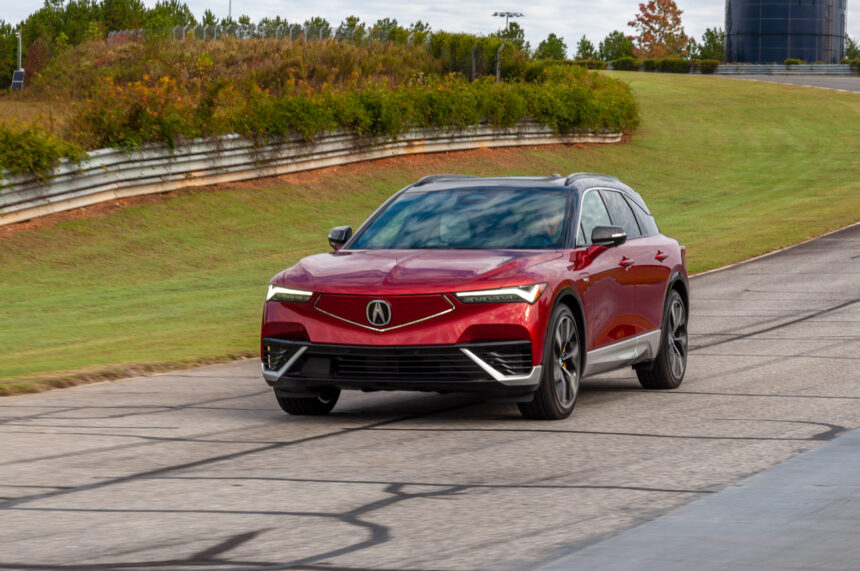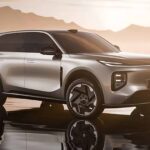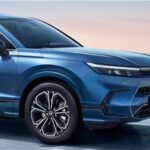The quest for the Best Car To Buy 2025 award led us to test numerous new or redesigned vehicles in order to determine the top five finalists. While narrowing down the selection was a challenging task, there were several cars that, despite their improvements, did not quite make the cut. Here, we delve into the details of these vehicles that, while not finalists, still offer value to many shoppers.
First on the list is the Acura EV, which, unlike the Prologue, fails to stand out in any significant way. Lacking the sportiness and distinctiveness of its competitors, this model falls short of making a lasting impression. Similarly, the Buick Enclave, while boasting standard tech features and a modern design, fails to offer enough value to justify its price range of $46,000 to $60,000.
Chevy’s electric truck, the Silverado EV, offers impressive features such as a collapsible midgate and rear-axle steering. However, the high price tag, especially for the top trim levels, may deter potential buyers. The Chevrolet Suburban and Tahoe, though updated with more tech interfaces and V-8 options, do not introduce enough innovation to set them apart in the full-size SUV segment.
The redesigned Chevrolet Traverse, while spacious and stylish, falls short due to its coarse engine performance. Similarly, the Fiat 500e, with limited range and a high starting price, may struggle to find a niche in the market. Ford’s revamped Ranger lineup, though offering a range of engine options, lacks refinement in its automatic transmission and towing capabilities.
The GMC Acadia, part of the trio of three-row SUVs along with the Enclave and Traverse, suffers from similar engine issues that disrupt the overall driving experience. Hyundai’s Sonata, while offering good standard features and fuel efficiency, does not quite reach the level of excellence required for the Best Car To Buy title. Lastly, Kia’s Carnival minivan, while improved with a hybrid option and sleek design, may still face challenges due to its inherent minivan features like sliding doors.
While these vehicles may not have made the final cut for the Best Car To Buy 2025 award, they still offer valuable options for consumers in search of a new vehicle. Each model brings its own unique features and improvements, catering to a variety of preferences and needs in the automotive market. The 2025 Kia K4 may be the best minivan in its class, but it doesn’t quite move the needle enough to be considered the Best Car To Buy. It’s set to replace the Forte compact sedan in Kia’s lineup, following in the footsteps of the K5 which replaced the Optima. While we don’t have all the details yet, we’re eagerly anticipating the opportunity to get behind the wheel later this year.
Moving on to the new CX-70 from Mazda, this midsize crossover is essentially the same as the CX-90, offering a similar feature set and engine choices, including a powerful plug-in hybrid option. The main difference is that the CX-70 seats five passengers instead of seven, making it a more compact and practical choice for smaller families.
The 2025 Nissan Kicks has entered its second generation with enhancements in size, roominess, and the addition of all-wheel drive. Despite being a great value starting at $23,000, its limited powertrain options prevent it from standing out as a finalist in this year’s competition.
The redesigned 2025 Ram 1500 pickup truck offers a choice between two new twin-turbo engines, providing a modern and comfortable driving experience. However, the absence of the Ramcharger range-extended EV and the Ram 1500 REV means it falls short of being a top contender.
The 2025 Toyota Camry, on the other hand, boasts a hybrid-only powertrain that delivers impressive performance and fuel efficiency. With a spacious interior, modern features, and a starting price of around $30,000, it’s a solid choice for sedan buyers. However, it narrowly missed the mark for this year’s Best Car To Buy award.
The Toyota Crown Signia is a unique offering that straddles the line between a wagon, car, and crossover. While it offers standard all-wheel drive and a hybrid powertrain, its ambiguous design may not appeal to everyone.
Finally, the 2025 Toyota Land Cruiser makes a return with a modern hybrid powertrain that offers both power and efficiency. Despite its off-road capabilities and updated features, it falls short of living up to the legendary status of its predecessor.
In conclusion, while each of these vehicles has its own strengths and appeal, none of them quite stand out enough to be crowned the Best Car To Buy. It will be interesting to see how they fare in the market and among consumers in the coming year. The world of technology is constantly evolving and advancing at a rapid pace. From the invention of the wheel to the development of smartphones, humans have always been determined to find ways to make their lives easier and more efficient. One of the most exciting developments in recent years has been the rise of artificial intelligence, or AI.
Artificial intelligence refers to the simulation of human intelligence in machines that are programmed to think and learn like humans. This technology has the potential to revolutionize industries across the board, from healthcare to finance to transportation. AI has the ability to process vast amounts of data at incredible speeds, making it a valuable tool for businesses looking to streamline their operations and make more informed decisions.
One of the key applications of artificial intelligence is in the field of healthcare. AI-powered tools are being used to analyze medical images, predict patient outcomes, and even assist in surgical procedures. These technologies have the potential to improve the accuracy and efficiency of medical diagnosis and treatment, ultimately leading to better patient outcomes.
In the finance industry, artificial intelligence is being used to detect fraudulent activity, predict market trends, and automate customer service. These tools can help financial institutions save time and money while also improving the overall customer experience. AI-powered chatbots are becoming increasingly popular for providing quick and efficient customer support, reducing the need for human intervention.
In the transportation sector, artificial intelligence is being used to improve safety and efficiency on the roads. Self-driving cars, powered by AI algorithms, have the potential to reduce accidents and traffic congestion, while also making transportation more accessible for people with disabilities or mobility issues. AI-powered drones are also being used for delivery services, surveillance, and search and rescue operations.
While the potential benefits of artificial intelligence are vast, there are also concerns about its impact on jobs and privacy. As AI technologies become more advanced, there is the potential for automation to replace human workers in certain industries. Additionally, the collection and analysis of vast amounts of data raises questions about privacy and security.
Despite these challenges, the future of artificial intelligence looks bright. As researchers continue to develop new technologies and applications, the potential for AI to improve our lives and transform industries is limitless. With the right regulations and ethical guidelines in place, artificial intelligence has the potential to revolutionize the way we live and work for generations to come.





